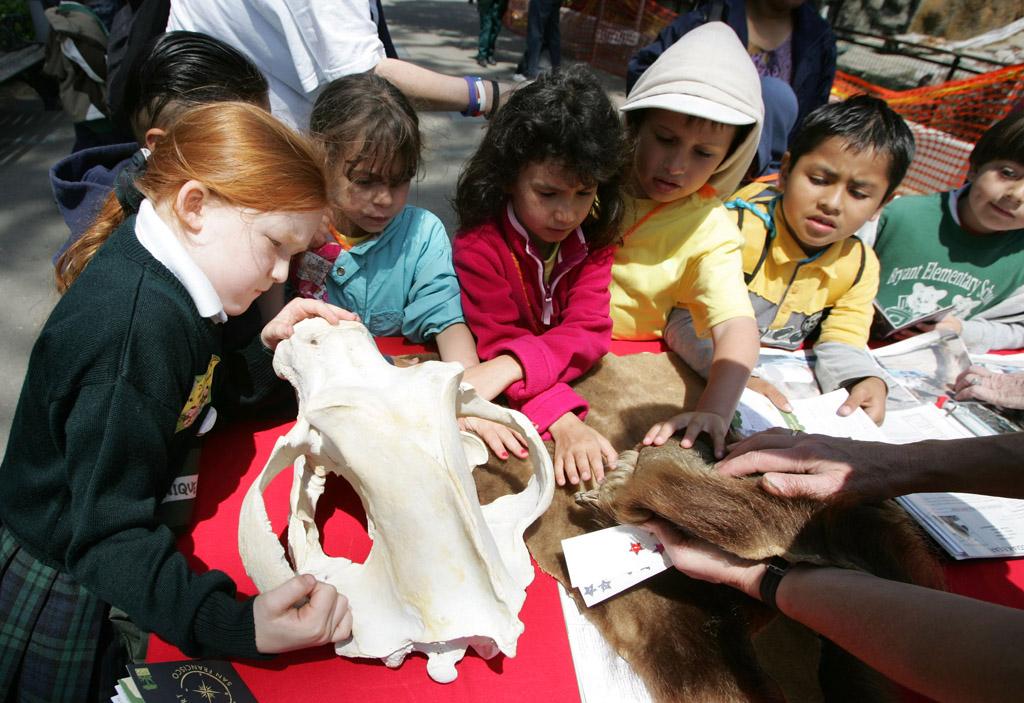Scientists discover 4 prehistoric bear skulls underwater (VIDEO)
Schoolchildren inspect a bear skull and hide at the San Francisco Zoo. Scientists recently discovered four perfectly preserved prehistoric bear skulls in underwater caves in Mexico.
Archeologists have discovered four perfectly preserved prehistoric bear skulls underwater in underwater caves in Mexico.
Scientists believe that the extinct species, which date back over 12,000 years, lived in the caves in the ice age before they became filled with water, BBC News reported Thursday.
Investigators from Mexico City's National Autonomous University of Mexico (UNAM) and officials at the National Institute of Anthropology (INAH) uncovered the skulls in an ancient sinkhole, also known as a cenote, according to Channel 3 News New Zealand.
More from GlobalPost: Tomb of female singer found in Egypt's Valley of the Kings
The cenote provided the ideal conditions to preserve the remains for thousands of years.
"We have found a large quantity of [bear] remains," archeologist Guillermo de Anda Alanis told Channel 3. "Some of them are clearly of Mayan origin."
The article you just read is free because dedicated readers and listeners like you chose to support our nonprofit newsroom. Our team works tirelessly to ensure you hear the latest in international, human-centered reporting every weekday. But our work would not be possible without you. We need your help.
Make a gift today to help us reach our $25,000 goal and keep The World going strong. Every gift will get us one step closer.
